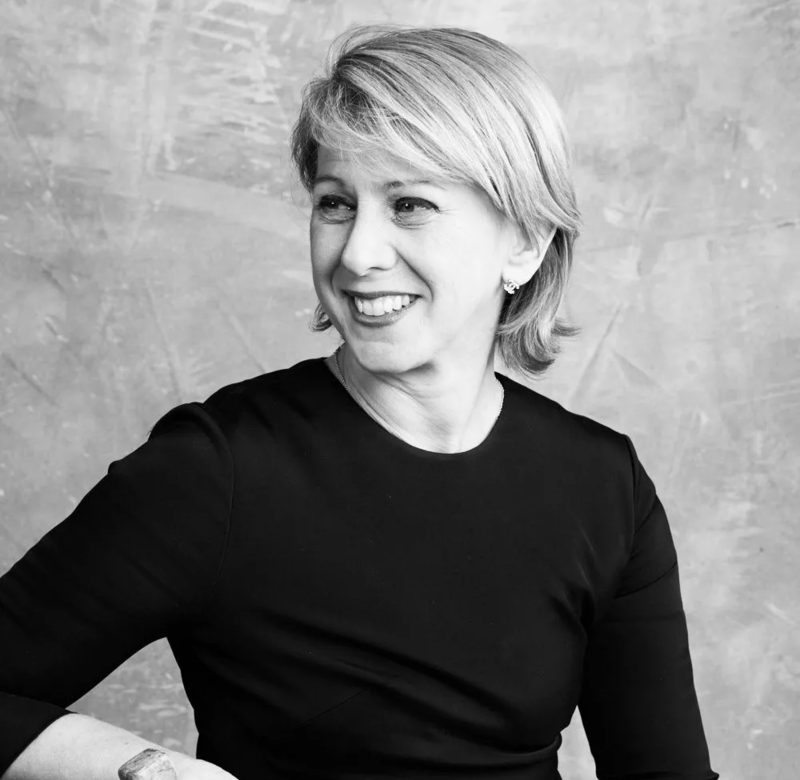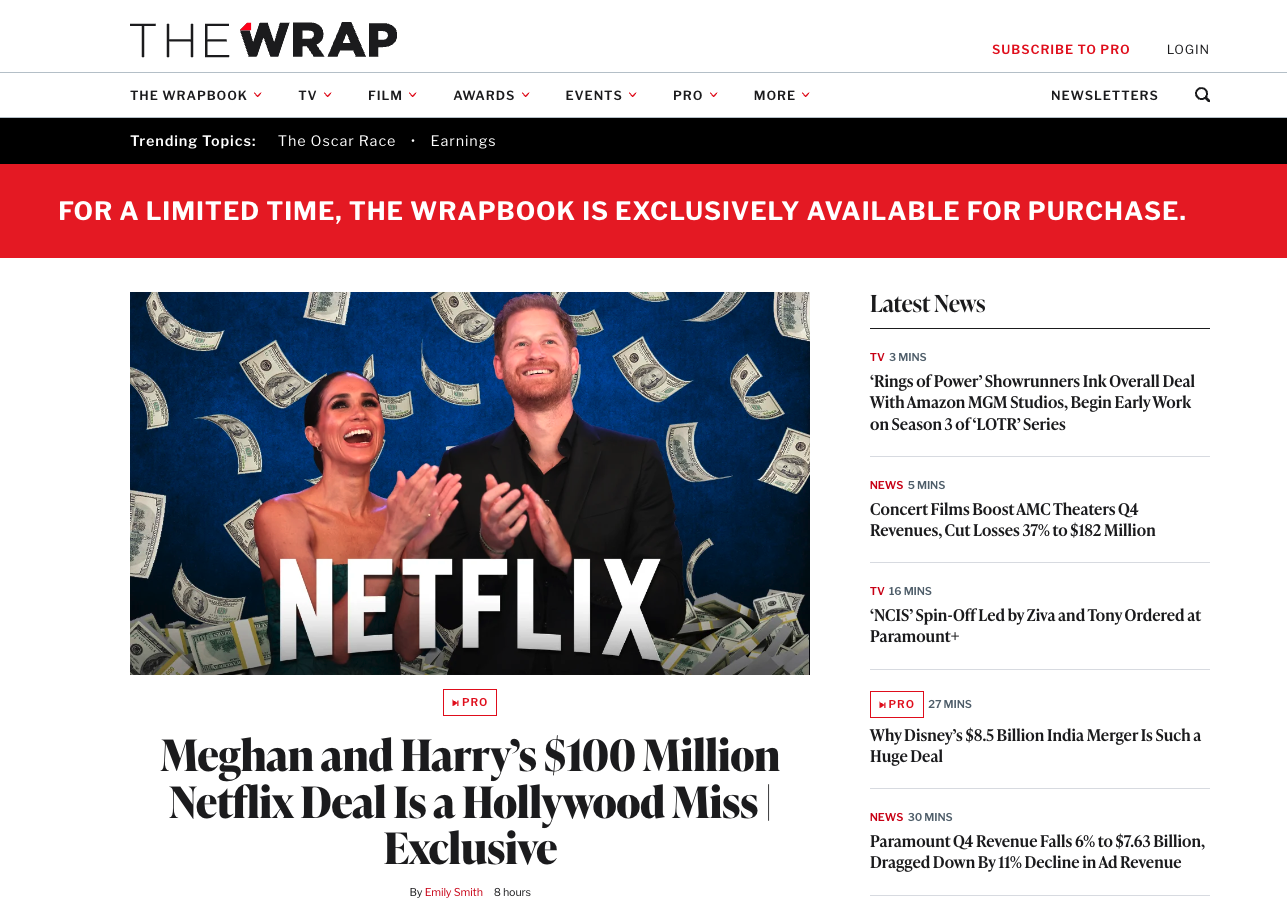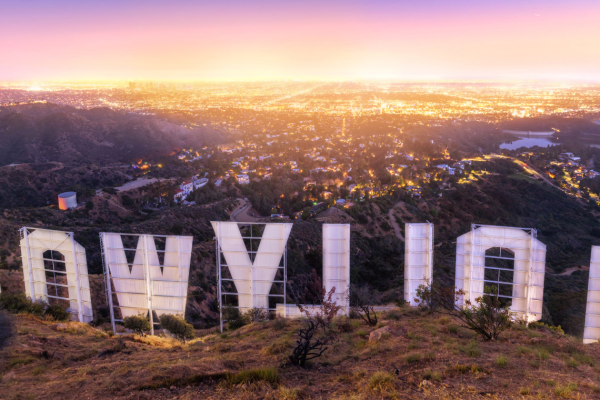The Wrap’s Sharon Waxman: How AI is changing Hollywood – and the implications for the media
The entertainment industry is undergoing seismic change and disruption. Emerging technologies such as Artificial Intelligence and cultural initiatives like Diversity, Equity and Inclusion are reshaping Hollywood. Where will this shift take the industry, and what are the implications for the media? Sharon Waxman, CEO and founder of leading independent B2B brand The Wrap, shared her insight with Ashley Norris.
- AI has significantly disrupted the entertainment industry.
- The media needs to double down on the role humans play in crafting content.
- The backlash against Diversity, Equity and Inclusion initiatives has begun.
Back in the early 00s, the media began a process we now call digital transformation, moving from its traditional print base to online content delivery.
It wasn’t the first industry to experience a seismic shift from analogue to digital: The entertainment industry underwent this a few years before.
Napster and illegal file sharing of music proved to be an existential threat to the industry, which responded with legitimate digital offerings such as iTunes and Spotify.
The film industry shifted online with the growth of streaming services Netflix, Amazon Prime, and Apple, which offer significant new revenue sources to filmmakers.
The lessons the entertainment industry executives learned in that initial phase proved invaluable to the media owners, who faced similar challenges a few years later.
Now it looks like history is about to repeat itself. ChatGPT elevated generative Artificial Intelligence (AI) into public consciousness, and it is a very live issue for media companies. Yet the entertainment industry has been working on its response to AI for several years. Most notable was the screenwriters’ strike of 2023, when members of The Writers Guild of America cited several issues, including the use of generative AI.
One person who has a 360-degree view of how technology is impacting the entertainment industry and how it might change the media is Sharon Waxman, founder and CEO of The Wrap.
Sharon will be at Mx3 Barcelona on March 12-13, sharing insights in a session called “The business of Hollywood: What the business of entertainment tells us about the future of media“. She will attend the whole event, so connect and meet with her there. The full Mx3 agenda is here. You can read more about the event here. Get 10% discount with code MX3_FIPP10.
A response to a changing market
Launched over 15 years ago at the tail end of the blogging boom, The Wrap has established itself as a key source of news and gossip for individuals in the entertainment industry. The brand also debuted a subscription service, WrapPRO, and hosts a series of events.

Its genesis came at a crossroads for the media. Sharon had been a journalist for several years, mainly working for The New York Times. She sensed that mainstream media was about to change irrevocably.
“Bloggers were starting to dominate news conversations,” says Sharon. “There was a lot of anxiety in news organisations about how the internet was destroying their business model. Already the baseline commercial foundation for newspapers, which was classified advertising, had begun to nosedive.
“And what we were starting to see, and I was a reporter at The New York Times back then, were serial layoffs all through 2006, 2007 and 2008. And it started for me with a series of conversations in my home with friends and colleagues asking, ‘What’s going to happen to us?’”
Sharon concluded that there was an opportunity to “monetise her Rolodex” and replicate the type of stories she had been supplying for the NYT, but online and on her own website.
It was quite a leap.
“I hadn’t written a business plan. I didn’t really know the internet at all. I hadn’t managed anyone before. I didn’t have relationships with people who could run advertising or tech development or who knew how to build a website, or run finance or operate back offices. I didn’t have any of that experience or knowledge.
“But I thought, let me see what I could come up with. So I wrote it on a single piece of paper.”
Tweaking business models
Sharon’s hunch proved to be a good one. The Wrap became a key player in B2B entertainment media. In Sharon’s own words, it has been something of a ride.
“The past 15 years has been a period of constant ups and downs. It has been impossible to find a stable, predictable, go-forward business model. You have to constantly shift, pivot, re-strategise and reorganise your resources. I think those of us in B2B have had it slightly easier, but it has been absolute murder, and the carcasses of all the companies that have started since The Wrap launched are proof of just how difficult and unpredictable it’s been.”
What has surprised Sharon is how the B2B media that writes about the entertainment industry has progressed largely as a response to the challenges she outlined.
“The biggest shock was that every other competitor has been consolidated under one owner. We’re really the only independent media company in our space. Every other B2B publication, and that’s Variety, The Hollywood Reporter, and Deadline, are owned by Penske Media Corporation.
“That’s obviously a challenge because we’re the single independent small guys. Yet at the same time the benefit is [that] people want an independent alternative. And so in a kind of counterintuitive way, that has also helped us. I think being small and scrappy is in our DNA and is a positive thing.”

AI – the positives and negatives
Looking to the future, The Wrap, like all other media brands, has to work out how to respond to the threat – and the potential – of AI. So, what is happening in the entertainment world concerning technology, and how might it impact the media generally?
“There is still a prevailing fear that AI is coming for everybody’s job. And it is. We did a big series on AI in the middle of last year when it was still only six months old and tried to kind of figure out, ‘How is this going to change everything?’ Does it, for example, change animation? How many animators will you actually need, because AI can scale drawing? Can you replace screenwriters? What about actors? Are they going to become a minuscule part of any production because you can replicate people through AI? And how do you copyright people’s images? So lots of questions and few answers so far.
“On the positive side, AI is a tool that people in the entertainment industry are already using to help create storyboards and to help them flesh out ideas for screenplays for movies and for television. Not actually writing the content, but helping to speed along the process.
“That said, I can’t see an entertainment industry where there are not overall fewer jobs. I just don’t see it. And I think it’s probably the same in the media.”
Sharon points out that that AI is creeping into newsrooms and news organisations, “whether we like it or not”. Some news organisations swear they’re never going to use it, and then they do, and they get caught, “which is so dumb”. Other companies are still experimenting.
“We are focused on what we do well. That’s training journalists in the traditional skills of reporting accurately. Getting news out competitively and quickly and first, and going deep in order to educate our readers and build that connection and relationship with them. These are the basics, but they are so important.
“AI is coming. You can record a conversation and then ask AI to spit out a summary, and that’ll be way faster and better than anything a person could have done in that time. But will it be accurate? Will it focus on the key issues?
“I think there will still be a demand for the traditional skills of reporting, checking facts, and talking to real human beings about what is actually happening.”
From a B2B perspective, a level of disruption and chaos in a particular niche often puts the media in a strong position as they must keep tabs on the constant changes and offer perspective. For Sharon, though, the concern is that potential readers might not find or truly appreciate the company’s content.
“People have to know where to find us. And they have to know how to distinguish between the information that The Wrap is giving them versus what might appear to be valid information coming from an influential account or an influencer. That’s a challenge.”
A changing Hollywood?
In addition to leading the debate on the future of the entertainment industry, Sharon has been a critical voice in Hollywood on issues of Diversity, Equity and Inclusion (DEI). TheWrap’s annual events include gatherings of female thought leaders at the Power Women Summit, which helped ignite significant change within the industry.
Sharon says things are slowly moving forward.
“It feels very much like two steps forward, one step back,” she says. “We have an incredibly enthusiastic audience who come to our summit every year. We started with a huge event for women. And then we’ve layered in other underrepresented communities. And that continues to be an enormously engaged audience who show up every year and fill every seat, and that’s clearly an indication of how much people feel like they need this type of event on DEI.
“So yes, I do feel like there’s progress that’s been made. But I also feel like there’s a fair amount of lip service that’s paid to the issue. And the decision-makers still tend to be the same entrenched group, which is usually white men.”
Sharon refers to the “huge raging storm right now” over whether DEI as a movement has gone too far, particularly on campuses and at elite universities.
“So, the pushback against DEI has started in a big way. Some people suggest that DEI is becoming a rigid structure that is stifling freedom of expression across the board and that diversity has to mean diversity of points of view, not only diversity in racial and ethnic terms.”
She has been waiting and watching to see if this movement bleeds into popular culture media, but thinks people want any excuse to say, “Ok, we’ve done what we needed to do, we’ve hit the bar. We have enough black women in this industry, etc.”
“At the same time, there are lots of examples of positive change too,” Sharon says. “I just don’t know how sticky it is.”
Hear Sharon talk about AI, Hollywood and the media
Media Makers Meet – Live
We’d like to see you at our upcoming live events in Spain and Portugal
Mx3 Barcelona focuses squarely on innovation in media, emphasising creator-led, consumer and B2B media operating in and across media verticals. It takes place from 12-13 March.
Click here for more. Get 10% discount with code MX3_FIPP10.
The FIPP World Media Congress, which Mx3 produce on license from FIPP, takes place from 4-6 June in Cascais, Portugal. The magazine media world’s flagship global event will be the 46th edition since it first launched in Paris in 1925.
Click here for more










